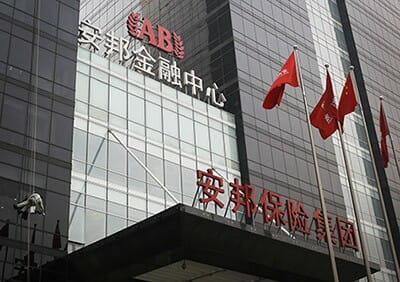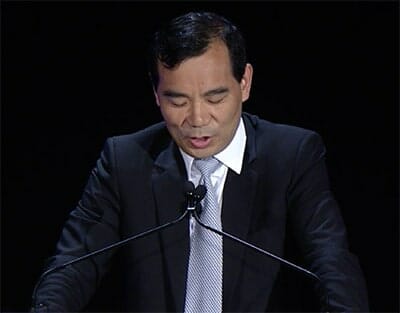
China’s Anbang Insurance blamed the market in abandoning Starwood bid
On Monday, China’s Anbang Insurance stunned the world – and Marriott International – with an all cash $14 billion offer for Starwood Hotels and Resorts Worldwide.
The offer, which reportedly was Anbang’s sixth attempt to buy the US hotel chain, was most likely the Chinese insurers last, after the Beijing-based company said in New York on Thursday that it was abandoning its non-binding bid.
The takeover drama now seemingly ends with Marriott International having won Starwood with a $13.6 billion offer, but leaves a mystery regarding why the murkily financed Chinese insurance company suddenly walked away from a target it had been stalking since the middle of 2015.
Mainland-Led Consortium Blames the Market
“We were attracted to the opportunity presented by Starwood because of its high-quality, leading global hotel brands, which met many of our acquisition criteria, including the ability to generate consistent, long-term returns over time,” Anbang, together with its investment consortium partners J.C. Flowers & Co and Primavera Capital Limited said in a statement.
“However, due to various market considerations, the Consortium has determined not to proceed further,” the group said in a brief statement before thanking Starwood’s board and the advisors involved.
Within hours, Starwood’s board declared in a statement that it “continues to unanimously support the existing merger with Marriott International, Inc, which will create the largest hospitality company in the world.”
After Anbang’s March 28th offer, the Wall Street Journal published a story documenting that Anbang made three offers for Starwood last year that were not considered by Starwood’s board due to a lack of details on financing.
Also during this week, Anbang attracted coverage in the New York Times with an account there raising questions about the rise of Anbang’s chairman, Wu Xiaohui, who in the past two decades rose from selling car insurance in a third-tier city in southern China to running an investment firm that has made billions of dollars of acquisitions globally in the last two years, including the $1.95 billion acquisition of the Waldorf Astoria hotel in New York.
The Times story noted ties between Anbang and family members of former high level mainland officials.
Did Chinese Regulators Pull the Plug on Anbang’s Buying Machine?

Things are once again looking down for Anbang boss Wu Xiaohui
Besides the scrutiny from US publications, Anbang was also running into resistance back in Beijing. Even before Anbang’s latest offer, the respected Chinese business news platform Caixin reported that China’s top insurance regulator, the CIRC, was preparing to block the insurer’s plan to buy Starwood on the grounds that the deal would put Anbang in violation of China’s 15 percent limit on overseas assets for insurance companies.
Since 2014, Anbang has already acquired more than RMB71.5 billion ($12.6 billion) of overseas assets, not including its 2015 deal for Belgian insurer Fidea, the value of which was not disclosed. With the company declaring in February of this year that it had RMB 700 billion in total assets, its current overseas holdings, including its agreement earlier this month to buy Strategic Hotels and Resorts from Blackstone for $6.5 billion, would translate into 10.2 percent of its holdings.
Accounts in the media have indicated that Anbang is financing its global acquisition spree through cash injections from shareholders, rather than through investing premiums from policy-holders like a traditional insurer. The New York Times account indicated that Anbang’s major shareholders could include senior members of Chinese political families, although many of these shareholders appear to have taken steps to conceal their identities.
Leave a Reply